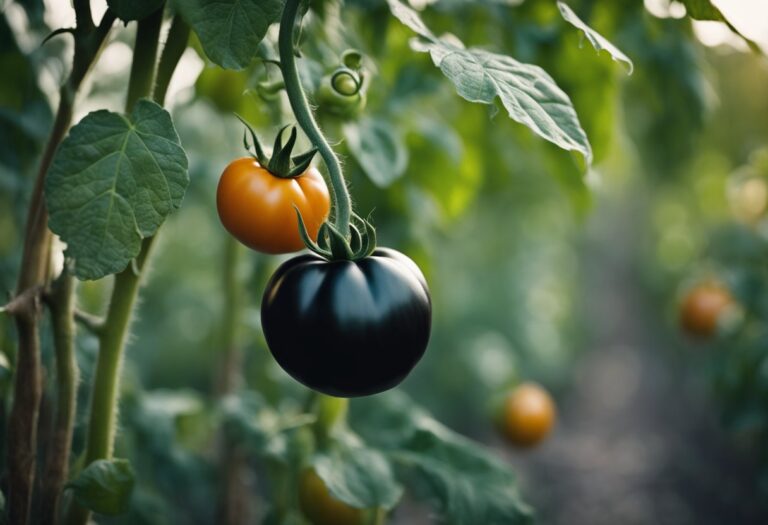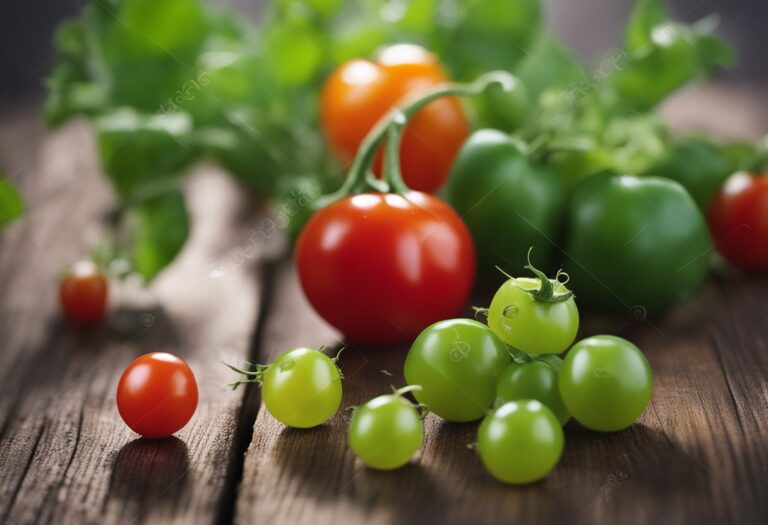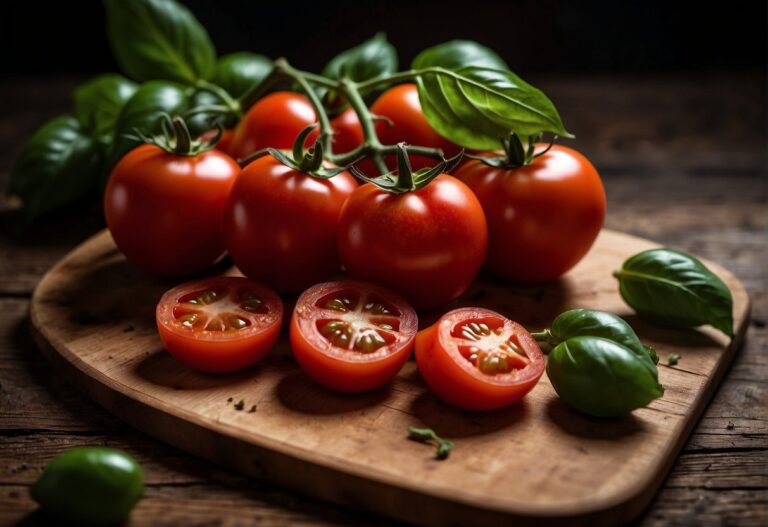Best Garden Sprayer: Top Picks for Efficient and Effective Plant Care
If you’re looking to keep your garden healthy and thriving, a garden sprayer is an essential tool to have. Garden sprayers allow you to water and fertilize your plants, as well as apply pesticides and herbicides to keep pests and weeds at bay. With so many different types and features available, it can be overwhelming to choose the best garden sprayer for your needs.

When considering which garden sprayer to purchase, there are several factors to take into account. The size of your garden, the types of plants you have, and the tasks you need to perform will all influence which sprayer is best for you. Additionally, features such as nozzle type, tank capacity, and ease of use should also be considered. By taking the time to research and compare different models, you can find the best garden sprayer to help you keep your garden healthy and beautiful.
Key Takeaways
- Consider the size of your garden and the tasks you need to perform when choosing a garden sprayer.
- Features such as nozzle type, tank capacity, and ease of use should also be taken into account.
- By researching and comparing different models, you can find the best garden sprayer for your needs.
Types of Garden Sprayers

When it comes to garden sprayers, there are several types to choose from, each with its own pros and cons. Here are the most common types of garden sprayers:
Handheld Sprayers
Handheld sprayers are the most common type of garden sprayer. They are lightweight, easy to use, and ideal for small to medium-sized gardens. Handheld sprayers come in different sizes and shapes, and they can be powered by a pump or battery. They are perfect for applying fertilizers, herbicides, and pesticides to your plants.
Backpack Sprayers
Backpack sprayers are ideal for larger gardens or areas that require a lot of spraying. They are designed to be worn on your back, which makes them easy to carry around. Backpack sprayers have larger tanks than handheld sprayers, which means you can cover a larger area without having to refill the tank as often. They are also great for applying liquid fertilizers, herbicides, and pesticides.
Hose-End Sprayers
Hose-end sprayers are attached to your garden hose and are perfect for spraying larger areas. They are easy to use and require no pumping or batteries. Hose-end sprayers are ideal for applying liquid fertilizers and pesticides to your lawn or garden. They are also great for watering your plants.
Trolley Sprayers
Trolley sprayers are large, wheeled sprayers that are ideal for commercial use or large gardens. They have a large tank and are designed to be pushed around like a trolley. Trolley sprayers are perfect for applying liquid fertilizers, herbicides, and pesticides to large areas quickly and efficiently.
No matter which type of garden sprayer you choose, make sure to follow the manufacturer’s instructions carefully to ensure safe and effective use.
Features to Consider

When choosing a garden sprayer, there are several features you should consider to ensure you get the best one for your needs. Here are some important factors to keep in mind:
Capacity and Size
One of the most important things to consider when choosing a garden sprayer is its capacity and size. If you have a large garden or lawn, you’ll want a sprayer with a larger capacity so you don’t have to refill it as often. However, if you have a small garden or only need to use the sprayer occasionally, a smaller capacity may be sufficient. Make sure to also consider the size of the sprayer itself, as you’ll want to choose one that is easy to handle and store.
Material and Durability
Another important factor to consider is the material and durability of the sprayer. Look for a sprayer made from high-quality materials that can withstand exposure to the elements and frequent use. You’ll also want to choose a sprayer with a durable nozzle and wand that won’t break or become clogged easily.
Pressure and Spray Patterns
The pressure and spray patterns of a garden sprayer can greatly affect its performance. Look for a sprayer with adjustable pressure settings so you can customize the spray to your needs. You’ll also want to choose a sprayer with a variety of spray patterns, such as a cone, fan, or stream, so you can use it for a range of tasks.
Ease of Use and Maintenance
Finally, consider the ease of use and maintenance of the sprayer. Look for a sprayer with an ergonomic design and comfortable handle that is easy to grip. You’ll also want to choose a sprayer that is easy to clean and maintain, with removable parts that can be easily replaced if needed. Make sure to also consider the weight of the sprayer, as a heavy sprayer can be difficult to use for extended periods of time.
By considering these features when choosing a garden sprayer, you can ensure that you get a high-quality, durable, and easy-to-use tool that will make your gardening tasks a breeze.
How to Choose the Best Garden Sprayer
Choosing the right garden sprayer can be a daunting task, but it doesn’t have to be. By understanding your garden needs, considering ergonomics and comfort, and keeping your budget and warranty in mind, you can find the perfect sprayer for your gardening needs.
Understanding Your Garden Needs
The first step in choosing the best garden sprayer is to understand your garden needs. Consider the size of your garden, the type of plants you have, and the tasks you need to accomplish. For example, if you have a large garden with many plants, you may want to consider a sprayer with a larger tank capacity. If you need to spray pesticides or herbicides, you may want to choose a sprayer with a wand that can reach high and low areas.
Ergonomics and Comfort
Another important factor to consider when choosing a garden sprayer is ergonomics and comfort. Look for a sprayer with a comfortable grip that won’t cause fatigue during extended use. Consider the weight of the sprayer and whether it will be easy to carry around your garden. If you have back problems or other physical limitations, look for a sprayer with an adjustable wand that can be used at different angles.
Budget and Warranty
Finally, consider your budget and the warranty offered by the manufacturer. While it may be tempting to choose the cheapest sprayer available, keep in mind that a higher-quality sprayer may save you money in the long run. Look for a sprayer with a warranty that covers defects or malfunctions, and consider purchasing from a reputable manufacturer.
By considering your garden needs, ergonomics and comfort, and budget and warranty, you can find the perfect garden sprayer for your needs. Whether you have a small patio garden or a large vegetable garden, a high-quality sprayer can help you keep your plants healthy and thriving.
Using Your Garden Sprayer Safely
When using a garden sprayer, safety should be your top priority. Here are some tips to help you use your garden sprayer safely:
Personal Protective Equipment
When using a garden sprayer, it’s important to wear the right personal protective equipment (PPE) to protect yourself from exposure to chemicals and other hazardous materials. Some of the PPE you may need to wear include:
- Gloves: Wear gloves to protect your hands from chemicals and other hazardous materials. Choose gloves made from a material that is resistant to the chemicals you will be using.
- Eye protection: Wear safety goggles or a face shield to protect your eyes from chemicals and other hazardous materials.
- Respirator: Wear a respirator to protect your lungs from inhaling chemicals and other hazardous materials.
Proper Mixing and Application
To use your garden sprayer safely, it’s important to follow the manufacturer’s instructions for mixing and applying chemicals. Here are some tips to help you mix and apply chemicals safely:
- Read the label: Before using any chemical, read the label carefully to make sure you understand how to use it safely and effectively.
- Mix chemicals carefully: Always mix chemicals outside or in a well-ventilated area. Never mix chemicals in an enclosed space.
- Apply chemicals carefully: Apply chemicals carefully to avoid over-spraying or under-spraying. Over-spraying can result in chemical runoff, which can harm plants and wildlife. Under-spraying can result in ineffective treatment.
Cleaning and Storage
Proper cleaning and storage of your garden sprayer is important to ensure that it lasts a long time and continues to work effectively. Here are some tips to help you clean and store your garden sprayer safely:
- Clean your sprayer after each use: After using your sprayer, rinse it out with water and then clean it thoroughly with soap and water. This will help prevent clogs and other problems.
- Store your sprayer properly: Store your sprayer in a cool, dry place where it won’t be exposed to direct sunlight or extreme temperatures. Make sure it’s stored away from children and pets.
- Dispose of chemicals properly: When you’re finished using chemicals, dispose of them properly according to local regulations. Don’t pour chemicals down the drain or into the trash.
Troubleshooting Common Issues
Garden sprayers are useful tools for maintaining your garden. However, like any other tool, they can develop problems over time. Here are some common issues you may encounter while using your garden sprayer and how to troubleshoot them.
Leaks and Pressure Problems
Leaks are a common problem with garden sprayers. If you notice a leak, check the hoses and connections for any damage or loose fittings. Tighten any loose fittings and replace any damaged hoses or connections.
Another common issue is low pressure. If you notice that your sprayer is not producing enough pressure, check the pump for any damage or debris. Clean the pump and any filters if necessary. If the pump is damaged, you may need to replace it.
Nozzle and Hose Maintenance
The nozzle and hose are two critical components of your garden sprayer. If you notice that the nozzle is clogged or not producing a consistent spray pattern, check for any debris or mineral buildup. Clean the nozzle with warm soapy water and use a small wire to clear any blockages.
Hoses can also develop problems over time. If you notice that your hose is damaged or leaking, replace it immediately. To prevent damage, avoid dragging the hose over rough surfaces or sharp edges.
Regular maintenance is essential to keep your garden sprayer in good working condition. By troubleshooting common issues and performing routine maintenance, you can ensure that your sprayer will last for years to come.
Frequently Asked Questions
What should I look for when choosing a garden sprayer?
When choosing a garden sprayer, you should consider the size of your garden, the type of plants you have, and the type of chemicals you plan to use. Look for a sprayer with a comfortable grip, adjustable nozzle, and a pressure release valve for safety.
How do I select the best nozzle for my garden sprayer?
The best nozzle for your garden sprayer depends on the type of chemical you plan to use and the area you need to cover. A fan nozzle is great for covering large areas quickly, while a cone nozzle is better for precise application.
What are the benefits of using a battery-powered garden sprayer?
Battery-powered garden sprayers are convenient and easy to use. They eliminate the need for manual pumping and allow you to cover large areas quickly. They are also quieter than manual sprayers and require less physical effort.
What is the ideal tank capacity for a garden sprayer for home use?
The ideal tank capacity for a garden sprayer for home use depends on the size of your garden and the amount of spraying you need to do. A 1-gallon tank is sufficient for small gardens, while a 2-gallon tank is better for larger gardens.
How can I find a garden sprayer that’s easy to move around?
Look for a garden sprayer with a comfortable shoulder strap and wheels for easy maneuverability. A lightweight sprayer is also easier to move around.
What are the advantages of using a vinegar-compatible garden sprayer?
A vinegar-compatible garden sprayer allows you to use vinegar as a natural alternative to chemical herbicides. Vinegar is safe for the environment and can be used to kill weeds and unwanted plants. Look for a sprayer with a corrosion-resistant tank to prevent damage from vinegar.



